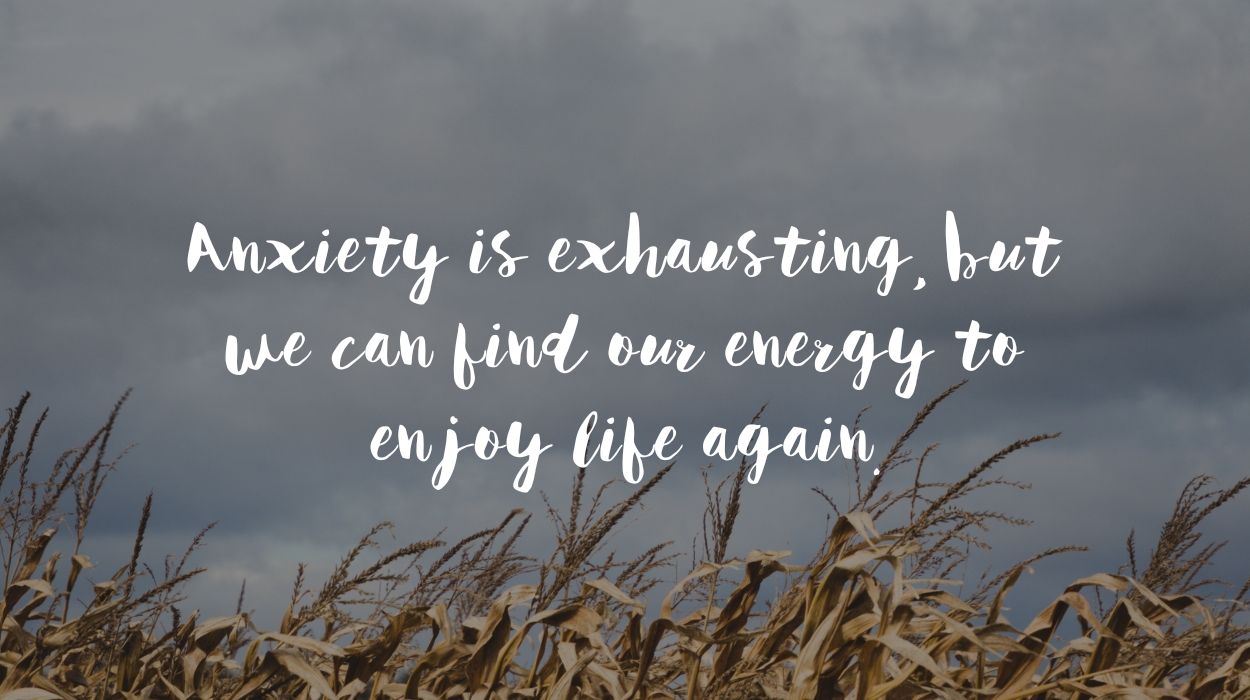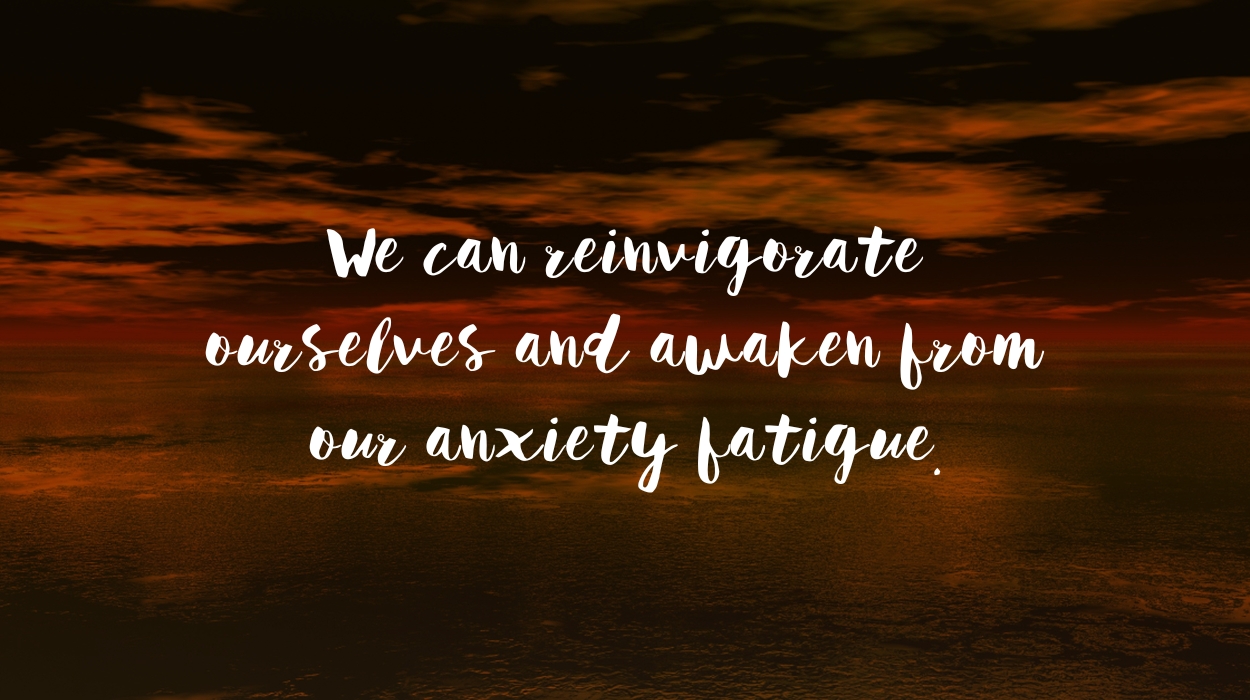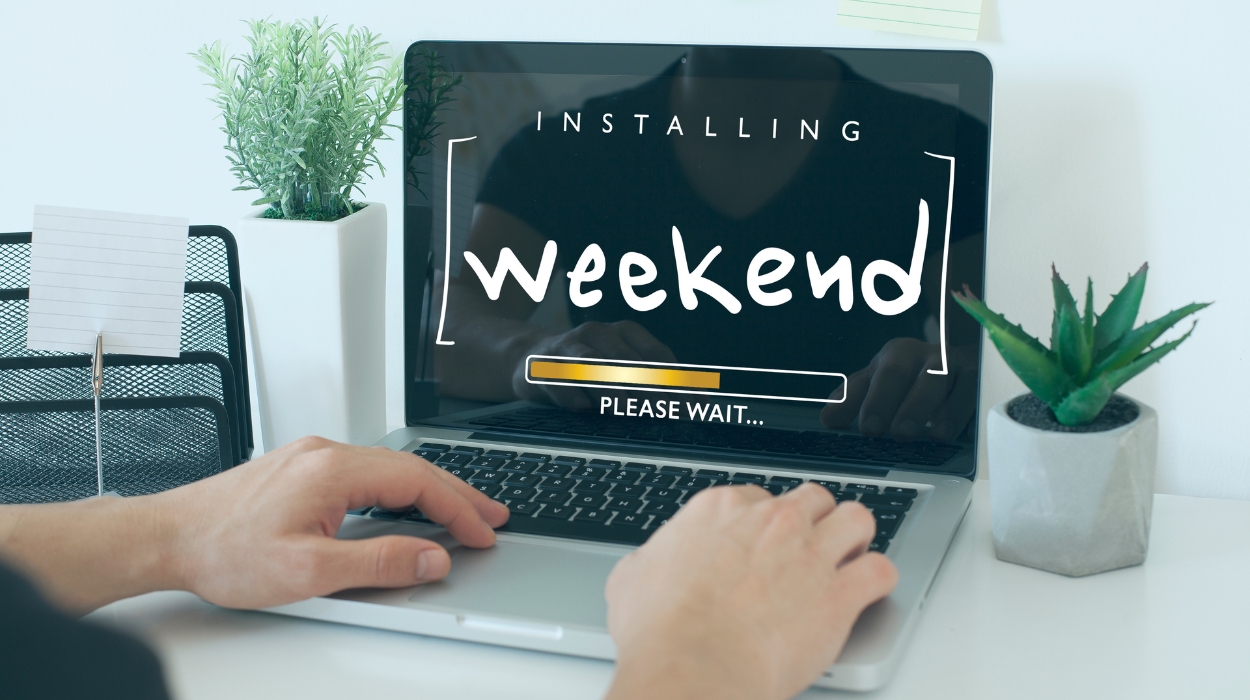Living with anxiety can be exhausting. We often feel restless, on edge and unable to control our ruminating thoughts and worries. When we’re so fatigued, it can feel as though our brain lives in a fog. We might find ourselves struggling to remember what we went into a room for.
Things we’d usually do on autopilot suddenly require a great deal of effort and guidance. Perhaps we find ourselves needing to dig out the recipe for our favourite meal for the first time in years, and we’ve turned the kitchen upside down looking for the pan that is exactly where we have always kept it. Our bodies feel heavy; like someone has added weights to our ankles and arms, making even the smallest of movements feel laborious.
It can feel as though we aren’t in control of our own bodies anymore. Just getting from A to B can feel like we’re wading through treacle. The exhaustion can be completely overwhelming and debilitating. When we are anxious, we use up a lot of our energy, both physically and mentally. This is the case even if we are not physically moving, as our brain goes into overdrive, our heart rate increases, our muscles tense and our body prepares its response.
The Mental And Physical Drain

When we are anxious, our mind and body are working to prepare us for a perceived threat. We feel like we don’t have control of our thoughts, as they race to try and find the worst possible outcome of every scenario we may face during our day. We may be doing a mundane task, such as driving to work, yet our minds are processing potential threats constantly: What if something goes wrong with the car? What if we miss that important meeting we have scheduled in?
We begin to catastrophise; turning every perceived problem into the ultimate worst-case scenario. If we miss the meeting, then we’ll lose our job, which means we won’t be able to pay our bills.
Our brains are being forced to run a marathon all before we have barely begun our day. Through all of this, the impact is not solely a burden on our brains, it is a physical drain as well.
Our body responds to our anxiety as if it were responding to a genuine threat by releasing stress hormones such as cortisol and adrenaline. The impact of this physically on our bodies is huge. Our heart rate and blood pressure increase. Our muscles tense. We might experience symptoms such as sweating, breathlessness, dizziness, nausea and aches and pains.
This response is beneficial if the threat is real, but when we are constantly in this high state of alert, it can lead to physical stress on our bodies, especially to our immune, digestive and nervous systems. It’s no wonder we feel mentally and physically drained of energy.
How To Overcome Fatigue From Anxiety

Awakening Our Brain And Body
When we find ourselves responding to a perceived danger, it is important to find a way to engage our prefrontal cortex again. We do this by awakening our vagus nerve to allow our body to regulate itself again.
We can do this in a number of ways, with some good examples given in this article by Fiona Austin.
This includes applying cold, for example taking a cold shower; massaging the site of the nerve on the neck gently; engaging our throat muscles; probiotics; and sleeping on our right side.
Recognising The Cause Of Our Anxiety
It can be helpful for us to assess what the root (or roots) of our anxiety might be. Keeping a diary and noting down the times throughout the day when our anxiety levels increased and what we were doing at that time can help us to identify potential reasons.
For example, if we find a correlation between our feelings of anxiety and our phone ringing we can begin to address why there is a connection. If our anxiety is related to a certain person, we can begin to assess why they evoke such a response. Perhaps our anxieties are related to certain places, or to traffic. This could be because of associations causing us to revisit a past trauma.
In instances like this, talking over our findings with someone we are close to and trust, or with a trained professional can be particularly helpful. A trained professional may advise medication, to help to maintain the correct brain chemistry to allow us to have better control of our anxiety responses. This will reduce the impact of stress on our bodies, and improve our quality of sleep.
Improving Our Sleep Patterns
We can reduce the stresses in the evening that may be impacting our quality of sleep. Having a wind-down routine could include things such as reducing our screen time, turning off our phones, taking a warm bath or reading a relaxing book. Building these practices into our evening routine can let our brain know it is time to rest and help our bodies prepare for sleep.
Making sure our sleep space is calming, comfortable and safe can also help. We should aim to make sure that the room in which we sleep is not associated in our mind with any of the stressors we may face during the day. For example, it can help to avoid working from our bedrooms if possible. We should reserve our bedroom strictly for sleep, so that our brain and body subconsciously associates it solely with the purpose of rest. It can be helpful to leave our phones outside of our bedroom too, or at least have them on ‘do not disturb’ if we are concerned about loved ones being able to reach us or an alarm awakening us.
Looking After Our Bodies
When we are looking after our bodies we are also looking after our minds, as diet and exercise both have a big impact on our brain chemistry.
Small changes such as replacing white bread or white pasta with whole-grain versions can help to increase hormones like serotonin in our brain, a natural mood regulator.
Drinking plenty of water can also have a big impact on our mood, as can reducing our alcohol and caffeine intake. There is a vast variety of alcohol-free versions of ‘alcoholic’ drinks and caffeine-free options of our go-to hot beverages, so there is no reason we can’t continue to enjoy our favourite drinks without consuming the caffeine and alcohol that can impact our mood and quality of sleep.
There are also some fantastic superfoods that can make a difference to our anxiety levels when we incorporate them into our diet, like berries, nuts and green vegetables. Harvard Health has some really useful information and advice to help us incorporate the right foods into our diets.
Exercise can help us to release tension in our bodies, produce hormones to help balance our stress levels, and provide us with a much-needed distraction from our anxious thoughts.
When it comes to exercise, we don’t have to engage in an intense workout for movement to benefit us. We can choose to go for a walk with a friend, instead of (or as well as!) heading to the local coffee shop; we can attend a yoga session, which will also help with things such as our breathing technique; or, if we’re at home, we could pop on our comfy clothes and dance along to a free dance workout video in our living room.
MIND has a great article on the importance and impact of exercise that might help to prompt us with some further ideas.
We Can Awaken Ourselves To A Life Beyond Anxiety Fatigue
Prioritising self-care and making small but meaningful changes can have a big impact on our brain chemistry, and in turn, our sleep. Ensuring that we prioritise the essential tasks can enable us to be intentional about how we utilise the limited energy we do have.
Making sure we rest and slowing our pace when we need to can enable us to better cope with daily demands and everything else life throws our way.
It can be helpful, too, to equip ourselves with some breathing techniques and practices for when we’re struggling with rising anxiety, to help us manage and minimise its impact. Here is one we can practice almost anywhere.
When we’re struggling to believe that the brain fog will ever clear, it’s important to remember that we aren’t alone. We deserve the support we need to help lift the fog and free ourselves from the fatigue caused by anxiety.
Please help us to help others and share this post, you never know who might need it.


 Author's opinion
Author's opinion




i understand, i'm listening, i'm here for you